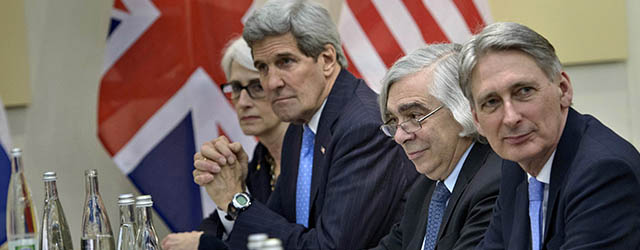Milestones | Iran

It may have taken 12 years to reach, but the framework agreement struck between the so-called P5+1 (Russia, China, France, Britain, and the US, plus Germany), the European Union and Iran has enough momentum, say analysts, to yield a full accord by June 30. If so, the Middle East will undergo one of the most profound changes to its political and economic landscape in decades.
The stakes are high, and getting in the way of a full agreement is a deeply skeptical US Congress as well as a vociferously opposed Israeli prime minister Benjamin Netanyahu. Iran also has its doubters with its supreme leader, ayatollah Ali Khamenei, calling for all sanctions to be removed when the deal was reached instead of according to the phased approach favored by P5+1. Nevertheless, if the final deal holds, it will pave the way for a surge of investment in the Islamic Republic’s $366 billion economy, with the energy and banking sectors expected to be early beneficiaries.
Majid Rafizadeh, president and director of the International American Council on the Middle East, believes president Obama’s diplomacy will ultimately prevail. “Since the break-free from the talks is costly, they are more likely to reach an agreement,” he says. “Congress is less likely to block the president from revoking United Nations Security Council sanctions on Iran.” The point is echoed by Kristian Coates Ulrichsen, a Baker Institute fellow for the Middle East. “The framework agreement is toward the better end of the spectrum for all parties. There is a lot of work that needs to be done, but incentives are built into the agreement, and all parties appear to have more to lose than to gain by not following through, so I am confident this will lead to a full agreement.”
The agreement called for Iran to grant increased access to International Atomic Energy Agency (IAEA) inspectors. In return, the six world powers agreed to waive US and European banking and oil sanctions in phases. The Sunni-ruled Gulf states—led by Iran’s nemesis, Saudi Arabia—will be hoping the Islamic Republic’s return to the oil markets is delayed as long as possible. Oil prices initially fell 5% on news of the deal. However, a lifting of the economic blockade would benefit Dubai and to some extent Muscat—the latter maintaining relations with Iran and having hosted secret negotiations between the US and the Islamic Republic.



